#i'm so blessed with all of you
Text
just want to thank you all for interacting with my multimuse ❤️
8 notes
·
View notes
Text
why do you guys talk like you think not voting means no one gets elected
#atlas entry#you're all so stupid g-d bless#“I'm not voting for Trump OR Biden! They both suck!” okay well one of them is gonna be our future president no matter what#like get you think things can't get any worse under Trump than they already are. You're wrong and stupid but I get it#might as well vote against the guy who has Nazis sieg heiling at his rallies
32K notes
·
View notes
Text
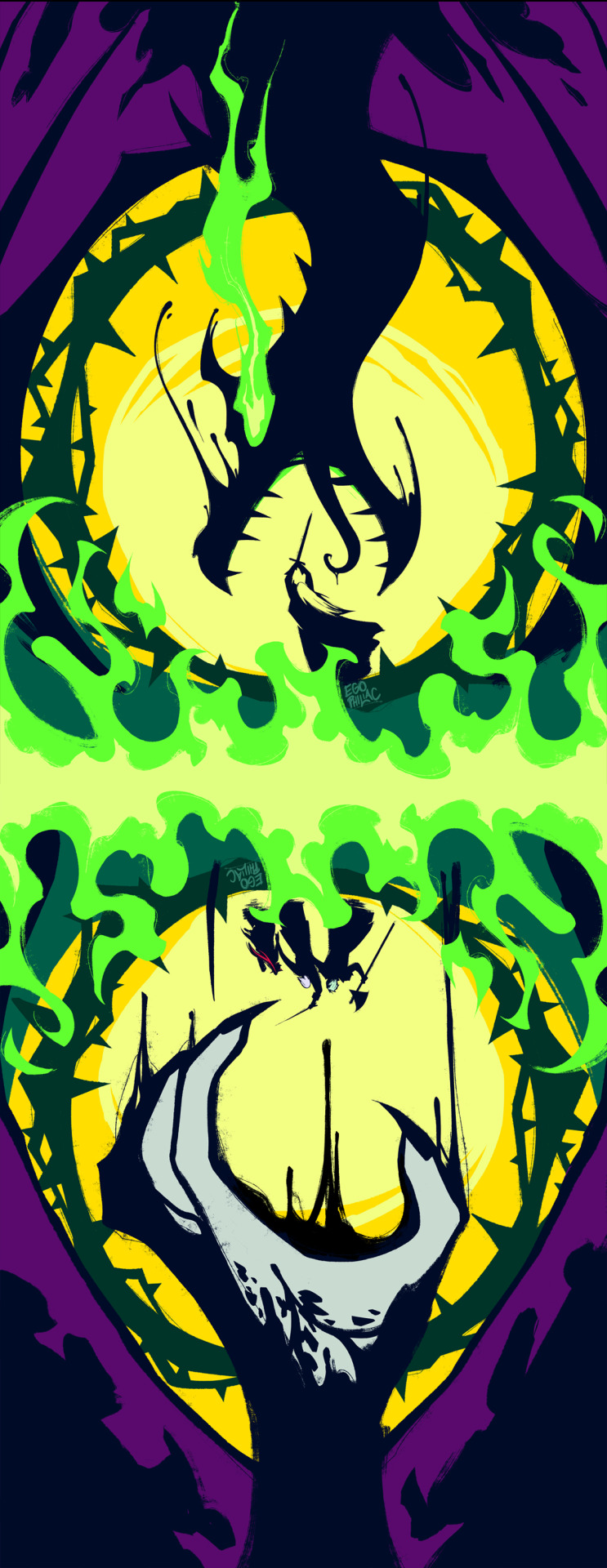
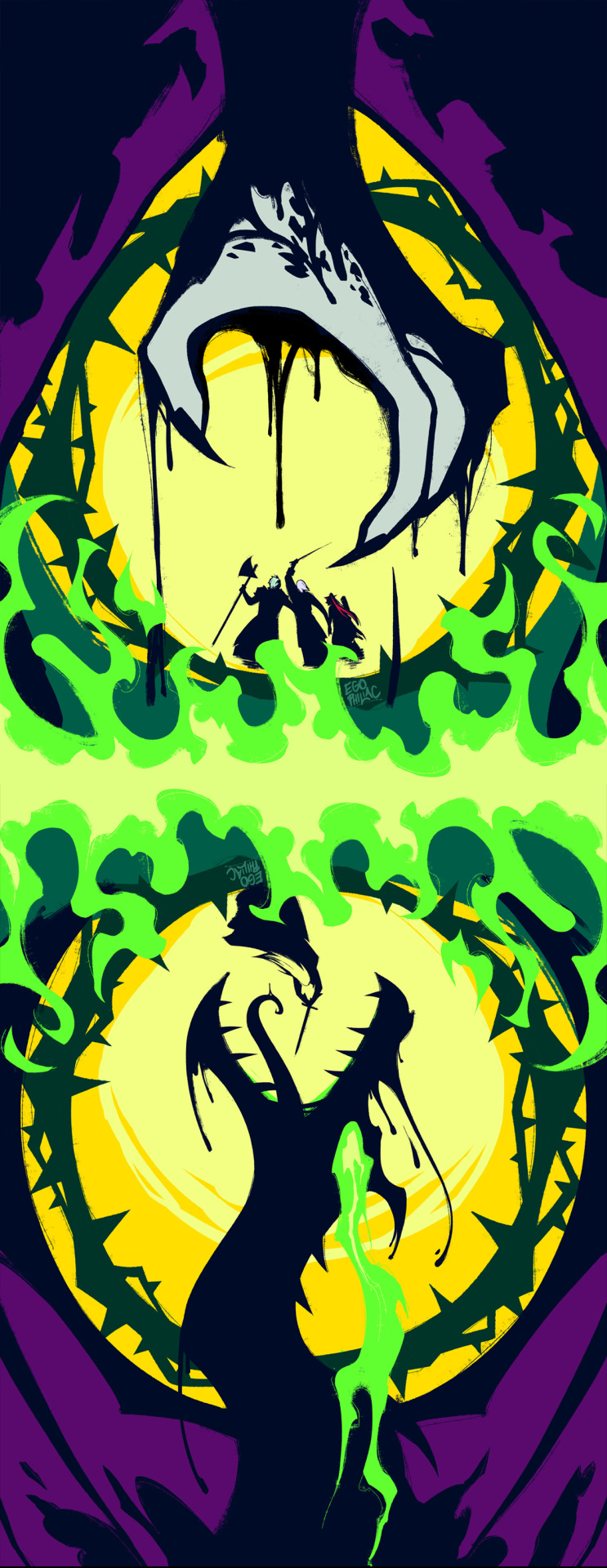
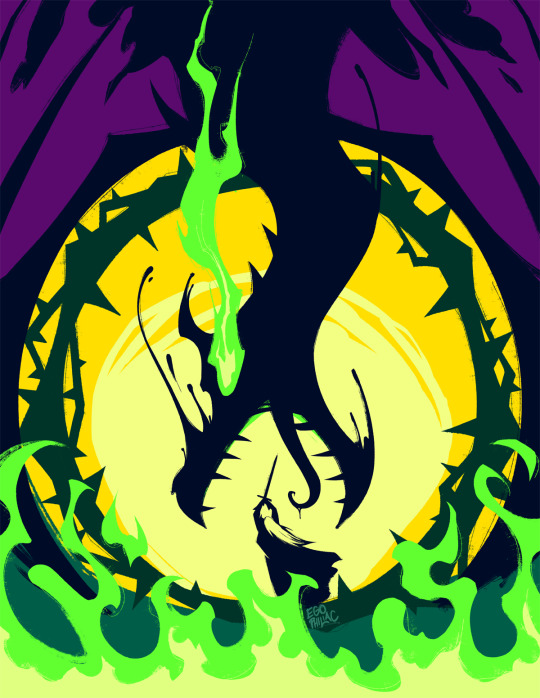
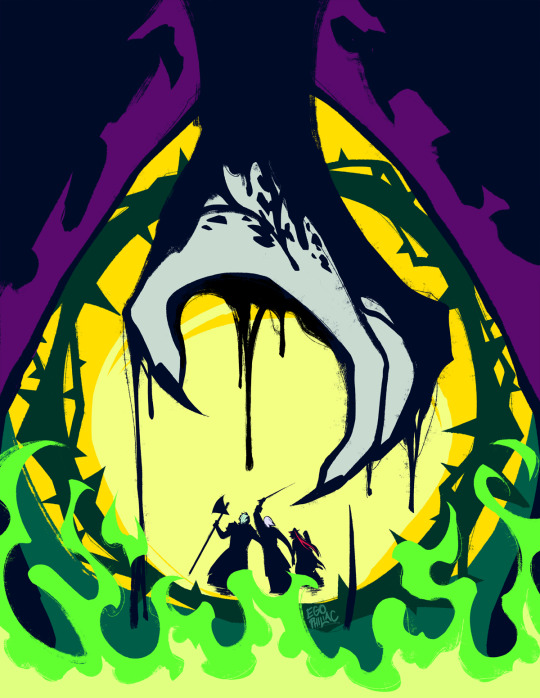
like mother, like son, but less wholesome this time?
(I couldn't decide whether or not to put them together, so have them in all the different ways!)
#art#twisted wonderland#twisted wonderland spoilers#twisted wonderland episode 7 spoilers#twisted wonderland episode 7 part 6 spoilers#twisted wonderland book 7 spoilers#twisted wonderland book 7 part 6 spoilers#if i had a nickel for every time a draconia ob'd while trying to save lilia#and had to be taken out by a member of this one specific bloodline with sparkly celestial hair that a fairy blessed#et cetera and so on you know the rest#i mean we know it's going to end better this time but y'know. the parallels!#oh meleanor my beloved#of course...of course she ob'd...it makes sense...#everything about this whole situation just massively sucked for everyone huh#well at least silver's biodad felt guilty about killing her i guess#i dunno i'm just havin' some feelings about all of this#lilia had both the absolute worst and absolute best things about his life come out of all this#down the two great loves of his life and also his job and reputation and 200 years of his life and uhhhh kind of everything else honestly#up some kids though!#(also one of those kids is a baby dragon who is JUST the right size to put silly hats on)#they were worth it to him! or maybe they were worth not giving up? look i am DEEP in the blorbosauce right now#if you don't want to read emotional tags about lilia twistedwonderland then don't come to egophiliac.tumblr.com
3K notes
·
View notes
Note
While we’re on the subject of names, is there an explanation for how traditional nicknames came about that are seemingly unrelated to, or have little in common with, the original name?
ie- John/Jack, Richard/Dick, Henry/Harry/Hank, Charles/Chuck, Margaret/Peggy/Daisy, Sarah/Sally, Mary/Molly, Anne/Nan, etc
I am actually over a week into researching a huge follow-up post (probably more than one if I’m being honest) about the history of nickname usage, so I will be going into this in much, much more detail at a hopefully not-so-later date - if I have not lost my mind. (Two days ago I spent three hours chasing down a source lead that turned out to be a typographical error from 1727 that was then quoted in source after source for the next 150 years.)
As a preview though, here’s some info about the names you mentioned:
The origins of a good portion of common English nicknames come down to the simple fact that people really, really like rhyming things. Will 🠞Bill, Rob🠞Bob, Rick🠞Dick, Meg🠞Peg.
It may seem like a weird reason, but how many of you have known an Anna/Hannah-Banana? I exclusively refer to my Mom’s cat as Toes even though her name is Moe (Moesie-Toesies 🠞 Toesies 🠞 Toes).
Jack likely evolved from the use of the Middle English diminutive suffix “-chen” - pronounced (and often spelled) “-kyn” or “kin”. The use of -chen as a diminutive suffix still endures in modern German - as in “liebchen” = sweetheart (lieb “love” + -chen).
John (Jan) 🠞 Jankin 🠞 Jackin 🠞 Jack.
Hank was also originally a nickname for John from the same source. I and J were not distinct letters in English until the 17th Century. “Iankin” would have been nearly indistinguishable in pronunciation from “Hankin” due to H-dropping. It’s believed to have switched over to being a nickname for Henry in early Colonial America due to the English being exposed to the Dutch nickname for Henrik - “Henk”.
Harry is thought to be a remnant of how Henry was pronounced up until the early modern era. The name was introduced to England during the Norman conquest as the French Henri (On-REE). The already muted nasal n was dropped in the English pronunciation. With a lack of standardized spelling, the two names were used interchangeably in records throughout the middle ages. So all the early English King Henrys would have written their name Henry and pronounced it Harry.
Sally and Molly likely developed simply because little kids can’t say R’s or L’s. Mary 🠞 Mawy 🠞 Molly. Sary 🠞 Sawy 🠞 Sally.
Daisy became a nickname for Margaret because in French garden daisies are called marguerites.
Nan for Anne is an example of a very cool linguistic process called rebracketing, where two words that are often said/written together transfer letters/morphemes over time. The English use of “an” instead of “a” before words beginning with vowels is a common cause of rebracketing. For example: the Middle English “an eute” became “a newt”, and “a napron” became “an apron”. In the case of nicknames the use of the archaic possessive “mine” is often the culprit. “Mine Anne” over time became “My Nan” as “mine” fell out of use. Ned and Nell have the same origin.
Oddly enough the word “nickname” is itself a result of rebracketing, from the Middle English “an eke (meaning additional) name”.
I realized earlier this week that my cat (Toe’s sister) also has a rebracketing nickname. Her name is Mina, but I call her Nom Nom - formed by me being very annoying and saying her name a bunch of time in a row - miNAMiNAMiNAM.
Chuck is a very modern (20th century) nickname which I’ll have to get back to you on as I started my research in the 16th century and am only up to the 1810s so far lol.
#names#nicknames#onomastics#history#asks#nicknames are really hard to research you guys#there is so much info out there and it's almost all nonsense#and I'm talking academic books with listed sources not buzzfeed listicles#some guy in the 18th century forgetting to mention Bill on a list of common nicknames does not mean it wasn't in use at the time ma dude#i've had to get very creative with sources#god bless word for word murder trial testimony
2K notes
·
View notes
Text




i'd love to celebrate my birthday with y'all! no pressure to say or do anything, just wanted to share and "invite" you all 🥰
#fnaf sun#fnaf moon#fnaf dca#fnaf eclipse#dca fandom#crab art#digital art#bright colours#animated gif#im shy and i don't want to come off as presumptuous or pushy#but i'm also learning to be honest with what i want and speaking up about it#and i want to celebrate my birthday month with the fandom that's been such a blessing to me#i'm so used to celebrating my birthday without friends because i never bring it up because i don't want to be a bother#it's also summer break so people are often on vacation or busy with work#but like#i cannot emphasize more what a blessing the dca fandom has been to my life the past couple of months#it was a welcome break from my studies and during my career change#and it refueled my creativity as an artist and a writer#and it's just so so nice to have friends that i could be honest and weird and silly with#that's why i want to share my day with you all
929 notes
·
View notes
Text
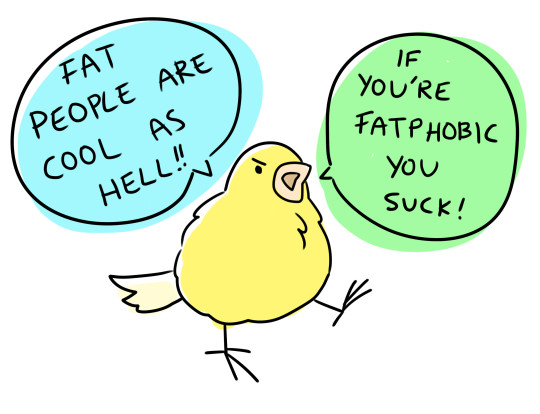
#art#fat positivity#body positivity#positivity#birblr#canary#doodle#Sorry I'm a bit all over the place at the moment guys#Had to spend time with my partner's fatphobic family#And I know I'm a thin guy so I am not like directly hurt by the things they believe#But it still was just an awful experience and I'm still kinda feeling that#And it infuriates me that me standing up for what's right is always framed as me being a delicate sensitive anorexic#You should treat fat people nice because they are people and deserve basic decency#I am not being overly sensitive by not wanting to hear your fatphobic crap#You're just not nice people#/rant over#Sorry for my little outburst guys! I am usually an easy going guy#I just get really riled up about this stuff#Fat people are wonderful and it is such a blessing to live in a world with such a huge range of different bodies!
5K notes
·
View notes
Text
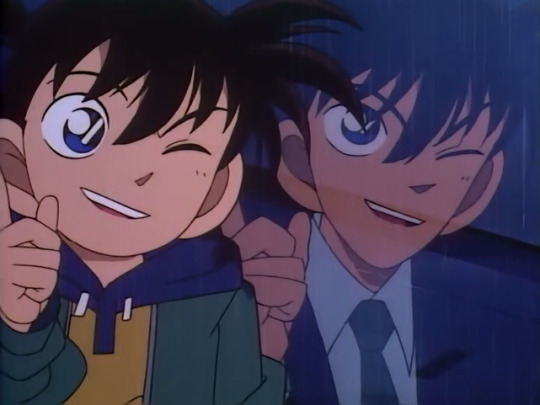
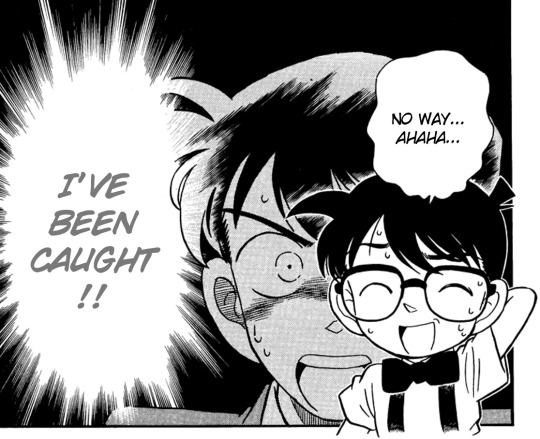

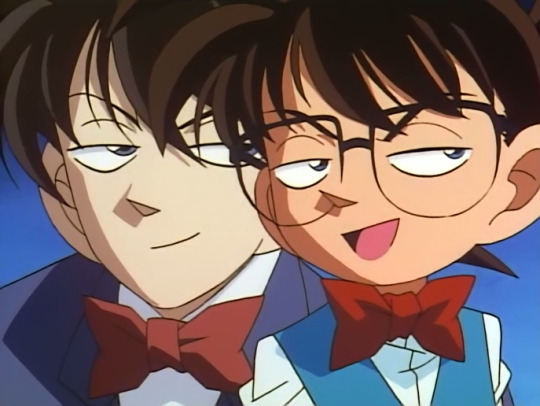
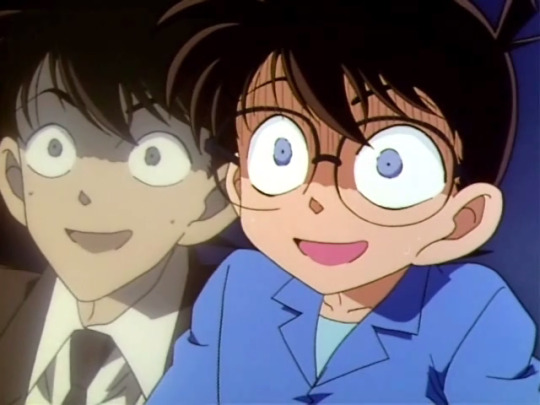
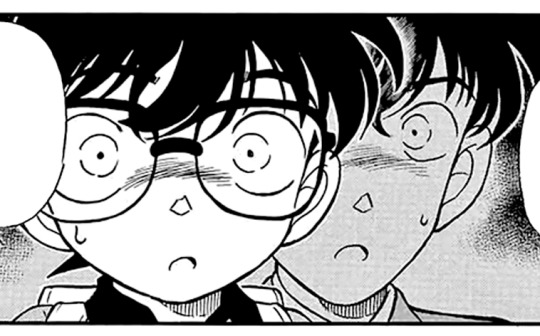
one of the best things in detco: conan and shinichi appearing side by side in frames/panels
another note: shinichi literally forgetting he's kudou shinichi bc he got used to being conan. iconic. it slipped his mind. oops.
#detective conan#manga#anime#edogawa conan#kudou shinichi#the detective gremlin#detco posting#detco watching#god i freaking love him#bonus points for all the times this happens 1) in important moments#and 2) when he gets a mini heart attack or when shocked#the one in ep 129 is so good too his expression is so SHOCKED in that one the true fear#but i need to gif that one#also 2 of these are from ep 32 and the case files and gosh IT'S SUCH A GREAT CASE#so many great gremlin expressions. bless kisaki eri for bringing it out of him#i'm obsessed with him. but i guess you got that part already#i love my menace of a son. dear walking encyclopedia child. a true gremlin. yes i'm saying all these very lovingly.
1K notes
·
View notes
Text
NEW FEAR OF YOU CONTENT AHH
Not even written by me! @dahvampire wrote an entire fanfiction for Fear of you, check it out!! <3
Pretty much this dynamic:

#WOOPS wrong blog LMAO#omg i'm so happy#THIS#AHHHHHHHH#I'm so freaking blessed; they writing about my blorbos#HELLOO#LOOKIT THE FREAKING PROSE#@dahvampire I will leave THE review to ever exist prepare your inbox#I'm so freaking crazy about this#Like THE GRIN I have on my face HELLO#I haven't read “All In” yet (only the first paragraphs with OH BOY DO I LOVE THIS ALREADY) I want to save it for my travel home today!!#Man why did I stop writing about them i love this fucking bird#I think I'm back in the fandom baby#HIUWE>itrfsda#I need to finish editing the next chapter of Foy#It's Endeavor and Shinyo centric too#Let's see how it goes weeee#bnha#mha#mha foy#bnha fear of you#mha fear of you#my hero academia#boku no hero academia#mha shinyo takami#bnha shinyo takami#mha the takami thief#bnha shinyo#bnha oc#mha endeavor
277 notes
·
View notes
Text
Equally Invalid
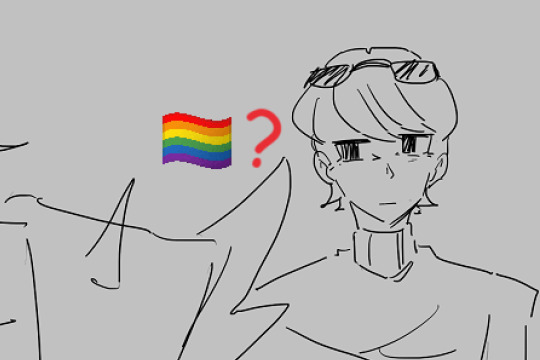
#trafficshipping#smallidarity#<- shipping rlly isn't the main main focus here but it ends on the kiss so I'm scared to tag anything else lol#cw blood#my art#animatic#it's more like. visuals for character analysis thoughts. because this is way more fun for all of us than writing it all out as an essay#I don't expect you guys to. Get it btw or at least not all of it alot of this is very self indulgent and jumps around the timeline#it's like 99% just for me but still. I hope the smallidarity enjoyers of the world can get smth out of it at least lol#very very very happy for ppl to ask abt specific scenes if ur interested ofc#I prefer not to spell out what things mean cus like. It's more fun for me thinking of ppl applying their own thoughts onto my stuff.#but if you ask I will yap forever god bless#if you want you can play a game of spot the jojo reference. and spot the utena reference#ANYWAY YEAH WOO scott and joel content yes yes yes woo!!!!#do they have a duo name like. at all. is that a thing#happy pride everyone
346 notes
·
View notes
Text
I always think it's a little surprising, irritating, endearing, something when big, tough men find solace in being gentle with their daughters.
There's reason to do tough things with them, too, to make sure they grow up strong and independent, but I think of a man like Simon "Ghost" Riley, who spent a huge percentage of his life being beaten down consistently by almost all the men who were around him.
And sure, he trusts the men in his task force with his life now, no question about it, but... I think the sudden calm he experiences when he starts to raise a daughter is beyond strange for him, but also weirdly... healing, too. Enjoyable.
That's not to say he doesn't, and hasn't, enjoyed the boyish things in life, the watching sports, the playing in the dirt, the pretending to hold guns part of growing up... but he finds himself sitting through your daughter's ballet class, overwhelmed by the calm that surrounds him, actually able to focus on the intensity of her pliers, her releves, the way her pink skirt ripples when she leaps into a sauter.
It's a new realization, a new kind of war (between him and learning how to be a parent), but it's one that doesn't revolve around the consistent anxiety that warps his stomach when he watches boys, little or not, teeter the line between roughhousing and fighting, picking on one another for shedding accidental tears that, really, cause no harm.
With your daughter, he's set in charge of watching her play with her friends and finds there is no lump in his stomach when she giggles with them, no dark possibility drifting in the back of his mind that she'll reach out and get her arm broken by someone she trusts--the fights she fights with her peers all between the characters they play and not between their fists, their games of laughter and drama and screaming but not of raging violence.
There's people who ask him, people who joke, wouldn't a man like him prefer a son? He must've been so disappointed... Yet, Simon still has yet to think of the best way to tell them that he honestly enjoys having a daughter a little bit more, that she runs to him and not for a second is he afraid she's hiding a snake up her sleeve, because she's only ever greeted him with flowers.
#simon riley x reader#ghost x reader#my kitten was named simon :( my simon says#now he's named corky LMAO i'm so mad at my aunt for that#but i just imagine ghost being like oh a daughter cool. and then he's like actually raising her and he's like hallelujah thank you jesus LO#'dont u want a boy?' no sir not at all gosh bless :) - ghost probably#anyway then u have a boy anyway and ghost is . p*ssing himself.#next step: convincing him to get a pet#if this is problematic... i sorry#i wanted to say it#its weird how many men have told me they think being a girl seems so much more relaxing and fu .. and i honestly have to be like. it is tbh#caitie posts#ghost#gen#kids tw
220 notes
·
View notes
Text
Anyway I love hua cheng has """kidnapped"""" xie lian fics. It's about the chaos. The shenanigans! The duality of the heavenly Court freaking out! Cut to hualian having a cute date! Jun wu mentally trying to rearrange his plans realistically sending xie lian to investigate should have disrupted their relationship why are they now getting married??? Xie lian popping in to the heavenly group chat going I'm FINE!!! Please please stop sending people to rescue me. Yes I've definitely been kidnapped let it go!!
#Tgcf#heaven official's blessing#Fanfics#hualian#Xie lian#Hua cheng#Jun wu#Hua cheng “kidnaps” xie lian#Xie lian : injured and lying about it#Hua cheng: gege actually I changed my mind you're no longer an honored guest you're now my prisoner so you must do what I say#Hua cheng: I'm an evil ghost king after all I would hate for things to escalate if you don't listen#Hua cheng: now take your goddamn medicine and let me change your bandages and brush your hair#Jun wu: ling wen have we tried plan 57 yet?? It's really cramping my style and triggering me that xie lian has so many people in his life#If anyone has any recs pls pls send them my way
208 notes
·
View notes
Text
Oh my god I woke up this morning and my Stardew Valley meta post had almost 150 notes????? Hello?????????? Anyways I started writing this last night because @moon-is-pretty-tonight left nice tags on the original so thank you so much!!
We know from the starting scenes of the game that the farmer's grandfather loved Stardew Valley. So why did he leave? Pelican Town is a good place to grow old; George and Evelyn are just fine. It's a fine place to raise a kid, but maybe he just wanted to raise his child closer to real schools and other children.
Or maybe, just maybe, he understood.
Was there a day when he was in his thirties where he looked at his friends and realized they weren't like him? That he could run faster than them, work longer, explore deeper into the hidden places of the valley?
Was there a day when he went to the wizard to ask him for help, for knowledge if nothing else? Did he learn then that his family was different? Special? Chosen? And how did he react? He couldn't possibly raise a child in the valley if they would be as strange and fey as him. He had to leave. There was no other way.
But years later, on his deathbed, did he regret that choice?
Is that why he gave the farmer the letter?
Is that why they went back home?
When the farmer steps off the bus that first day, the valley is still on the cusp of winter, just barely tipping over into spring. The flowers are starting to bloom, but a chill still hangs in the air. As soon as the farmer's boots touch the soil there's a change. The air gets warmer. The trees get greener. Not by too much, not all at once, but it changes.
The junimos watch the farmer as they do their work. They're new to farming, but take to it with frightening speed; their first batch of crops is perfect. None of the townsfolk tell them that parsnips don't normally grow in less than a week, that cauliflowers don't grow to be ten feet tall, that fairies don't visit when the sun goes down and grow potatoes and beans and tulips overnight. The junimos talk amongst themselves in their strange, wild language, and agree: this is the one. They're back. The valley recognizes its own, even when they've left for a generation. The farmers have come home.
Things change fast in the valley. The community center, empty and decrepit for so many years, is rejuvenated. (Lewis says it was abandoned only a few weeks after the farmer's grandfather left. Strange coincidence, he says, that it both came and went with the farmer's family.) The mines and the quarry, similarly abandoned, are explored for the first time in ages. The town becomes cleaner, brighter, more vibrant, happier.
And it is happier. Not just the environment, but the people. It's the talk of the town for weeks when Haley does her first closet purge. Leah's art show in the town square is a huge success. Shane's smiling for the first time since he moved to the valley. All of them, when asked, say it's all thanks to the farmer.
People love to ask why Lewis didn't fix the community center on his own. Why Willy never repaired the boat to ginger island. Why Abigail or Marlon never went down to fix the elevator in the mines, or why Clint didn't fix the minecarts.
But isn't it so much more interesting to ask how those things were there in the first place? How they got so broken down? If the stories the townspeople tell are true, the valley was once a beautiful place, flourishing and full of life; why did that change? When did it change?
Was it when the farmer's grandfather, the locus of the valley, its chosen representative, left town?
And if so, what happens when the farmer comes back?
#lich says shit#stardew valley#stardew farmer#sdv#my writing#Hope y'all enjoyed!#I'm thinking about developing this into. Like. An actual Fan Fiction. Still sort of short-form but like with more detail?#LMK if you'd be interested to see that! Also if you want to be tagged in future installations of this please just let me know :)#I'm super into this version of the farmer as like. Blessed and cryptic child of the valley with all the strange behavior that entails#If i DO write a more in-depth version of this it'll be from the perspective of someone in town#maybe Leah? She seems like she'd be the one to notice the farmer being Odd. Either that or I'll do it from the perspective of multiple--#--different people to get their unique insights and stuff#I'd also want to dig into like#The family history of the farmer. And what that's like.#Because like why did grandpa leave?#He clearly loved the valley#So why didn't he stay?#Why did he give the deed to his grandchild and not his literal child?#And is it a coincidence that everything in the valley went downhill when he left?#I don't think so.
182 notes
·
View notes
Note
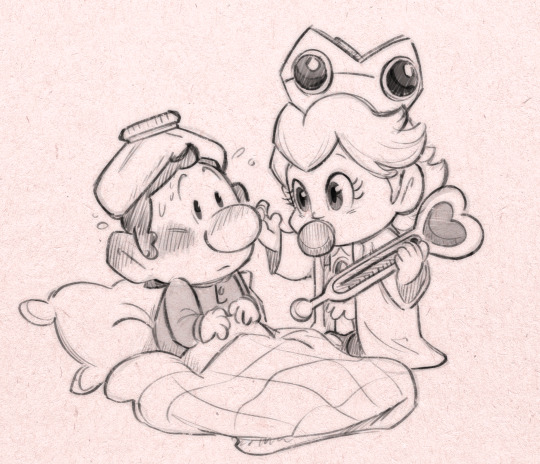
Sorry you've been feeling poorly. Hope you feel better soon ❤️🩹
MY HEART. WHY, YOU INSANELY TALENTED AND CONSIDERATE HUMAN BEING-!!
Brb. Gotta go lie down and cry. (;﹏;)
#THIS IS SO VERY BLESSED 😭🙏💗#I LOVE YOU SUE#OMG#How is it that you always come up with the best and most visually creative ideas every single time?? I'm-#This is illegaly cute#Kicking my feet rn#I'm gonna be staring at this all day#Babies! ToT 🙏💞#I don't deserve y'all 🥺👐#asks#amazing art#mario#princess peach#baby mario#baby peach#Did I say amazing art? Sue's work just casually boggling my mind again#Augh love this to bits 😣🫂💫#Thank you friend!!
181 notes
·
View notes
Text
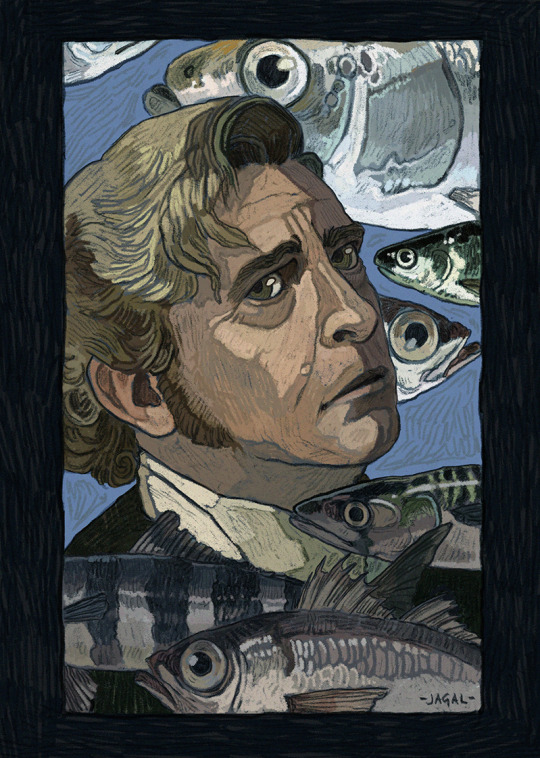
Lost
My first ever portrait of Stede (which is a crime, how did it take me so long!) done for Our Flag Means Zine, which got released this weekend, so I don't have to keep this a secret anymore 🔥 thank you SO much for having me, I love the zine and I'm honoured I could participate!
#stede bonnet#our flag means death#omfd fanart#fish#portrait#illustration#yeah I'm so making these fish portraits a regular thing of mine#you cannot escape#also this may be silly but i was anxious he's not stede-y enough? i wasn't sure if people would recognise him at cons so I'm SO HAPPY they#actually do and how popular this has gotten as a print <3 bless you all
124 notes
·
View notes
Text
An appreciation post for the Unknown fandom:
To the gifmakers: thank you for putting in the time and effort to create such beautiful gifs that help me relive my favorite moments of the show.
To the big brains: thank you for the in-depth analyses in body language/color theory/cinematography/character development and other areas that I typically overlook. Your eye for detail and ability to connect those details into poetic eloquence have made me appreciate the show even more. (This includes those of you who write essays in tags, just dropping insightful gems like it's no big deal. I see you and appreciate you.)
Thank you all for making the past 2 months such an enjoyable experience.
#unknown the series#關於未知的我們#i have so much more i want to say that i'm finding it difficult to articulate#so i'll just keep this short#i've been away from fandom in years and this return has been so much fun#thank you all for being kind and welcoming#there are so many creative and smart people here#what a blessing#this one rambles
111 notes
·
View notes
Text
there was some Twitter madness recently where someone left a comment on someone's art to the effect of, "Ed shouldn't wear a dress, he's a man!" which I do disagree with on principle, but unfortunately, it brought out one of my least favourite trends in the fandom
so, naturally, I had to write a twitter essay about it. and I already largely argued this in a post here, but the thread is clearer and better structured, so I thought I'd cross-post for those not on the Hellsite (derogatory). edited for formatting/structure's sake, since I no longer have to keep to tweet lengths, and incorporating a couple of points other people brought up in the replies
so
I want to point out that the wedding cake toppers in OFMD s2 aren't evidence that Ed wants to wear dresses. Gender is fake, men can wear skirts, play with these dolls how you like, but it's not canon, and that scene especially Doesn't Mean That.
People cite it often: 'He put himself in a dress by painting the bride as himself! It's what he wants!' But that fundamentally misunderstands the scene, and the series' framing of weddings as a whole. I'd argue that Ed paints the figure not from desire, but from self-hatred; it's not what he wants, but what he thinks he should, and has failed to, be.
(Yes, I am slightly biased by my rampant anti-marriage opinions, but bear with me here, because it is relevant to the interpretation of the scene, and season two as a whole.)
The show is not subtle. It keeps telling us that the institution of marriage is a prison that suffocates everyone involved. Ed's parents' cycle of abuse is passed to their son in both the violence he witnesses then enacts on his father, and the self-repression his mother teaches, despite her good intentions ("It's not up to us, is it? It's up to God. ... We're just not those kind of people. We never will be."). Stede and Mary are both oppressed by their arranged marriage, with 1x04 blunty titled Discomfort in a Married State. The Barbados widows revel in their freedom ("We're alive. They're dead. Now is your time").
But even without this context, the particular wedding crashed in 2x01 is COMICALLY evil. The scene is introduced with this speech from the priest:
"The natural condition of humanity is base and vile. It is the obligation of people of standing ... to elevate the common human rabble through the sacred transaction of matrimony."
It's upper class, all-white, and religiously sanctioned. "Vile natural conditions" include queerness, sexual freedom, and family structures outside the cisheteropatriarchal capitalist unit. "The obligation of people of standing" invokes ideas like the white man's burden, innate class hierarchy, religious missions, and conversion therapy. Matrimony is presented as both "sacred" (endorsed by the ruling religious body), and a "transaction" (business performed to transfer property and people-as-property, regardless of their desires), a tool of the oppressive society that pirates escape and destroy. That is where the figurines come from.
When Ed, in a drunk, depressive spiral, paints himself onto the bride, he's not yearning for a pretty dress. He's sort of yearning for a wedding, but that's not framed as positive. What he's doing is projecting himself into an 'ideal' image of marriage because he believes that: a) that's what Stede (and everyone) wants; b) he can never live up to that ideal because he's unlovable and broken (brown, queer, lower-class, violent, abused, etc); c) that's why Stede left. He tries to make himself fit into the social ideal by painting himself onto the closest match - long-haired, partner to Stede/groom, but a demure, white woman, a frozen, porcelain miniature - because, if he could just shrink himself down and squeeze into that box, maybe Stede would love him and he'd live happily ever after. But he can't. So he won't.
The fantasy fails: Ed is morose, turns away from the figurines, then tips them into the sea, a lost cause. He knows he won't ever fulfil that bride's role, but he sees that as a failure in himself, not the role. It's not just that "Stede left, so Ed will never have a dream wedding and might as well die." Stede left when Ed was honest and vulnerable, "proving" what his trauma and depression tell him: there's one image of love (of personhood), and he'll never live up to it because he's fundamentally deficient. So he might as well die.
This hit me from my very first viewing. The scene is devastating, because Ed is wrong, and we know it! He doesn't need to change or reduce himself to fit an image and be accepted (as, eg, Izzy demanded). Stede knows and loves him exactly as he is; it's the main thread and theme of season two!
(@/everyonegetcake suggested that Ed's yearning in these scenes includes his broader desire for the vulnerability and safety Stede offered, literalised through unattainable "fine" things like the status of gentleman in s1, or the figurine's blue dress. I'd argue, though, that these scenes don't incorporate this beyond a general knowledge of Ed's character. Ed is always pining for both literal and emotional softness, but the significance of the figurines specifically, to both Ed and the audience, is poisoned by their origin and context: there is no positive fantasy in the bride figure, only Ed's perceived deficiency.
Further, assuming that a desire for vulnerability necessarily corresponds with an explicit desire for femininity, dresses, etc, kind of contradicts the major themes of the show. OFMD asserts that there is nothing wrong with men assuming femininity (through drag, self-care, nurturing, emotional vulnerability, etc), but also that many of these traits are, in fact, genderless, and should be available to men without affecting their perceived or actual masculinity. It thematically invokes the potential for cross-gender expression in Ed's desires, especially through the transgender echoes in his relieved disposal, then comfortable reincorporation, of the Blackbeard leathers/identity. It's a rich, valuable area of analysis and exploration. But it remains a suggestion, not a canon or on-screen trait.)
Importantly, the groom figure doesn't fit Stede, either. Not just in dress: it's stiff and formal, and marriage nearly killed him. He's shabbier now, yes, but also shedding his privilege and property, embracing his queerness, and trying to take responsibility for his community. In a s1 flashback, Stede hesitantly says, "I thought that, when I did marry, it could be for love," but he would never find love in marriage. Not just because he's gay, but because marriage in OFMD is an oppressive, transactional institution that precludes love altogether. All formal marriages in OFMD are loveless.
So, he becomes a pirate, where they reject society altogether and have matelotages instead. Lucius and Pete's "mateys" ceremony is shot and framed not like a wedding, but as an honest, personal bond, willingly conducted in community (in a circle; no presiding authority, procession, or transaction).
That is how Stede and Ed can find love, companionship, and happiness: by rejecting those figurines and their oppressive exchange of property, overseen by a church that enables colonialism and abuse. Ed is loved, and deserves happiness, as he is, no paint or projection required.
ALL OF THIS IS TO SAY: draw Ed in dresses! Write him getting gender euphoria in skirts! Write trans/nb Ed, draw men being feminine! Gender is fake, the show invites exploration, that's what 'transformative works' means! But please, stop citing the cake toppers as evidence it's canon. Stop citing a scene where a depressed Māori man gets drunk and projects himself onto a rich, white, silent bride because he thinks he's innately unlovable and only people like her can find happiness, shortly before deciding to kill himself, as canon evidence it's what he wants.
(Also, please don't come in here with "lmao we're just having fun," I know, I get it. Unfortunately, I'm an academiapilled researchmaxxer, and some of youse need to remember that the word "canon" has meaning. NOW GO HAVE FUN PUTTING THAT MAN IN A PRETTY DRESS!! 💖💖)
#OFMD#Our Flag Means Death#OFMD Edward Teach#gender stuff#Togas does meta#god this seems even longer as a semi-proper essay XD#I know this is the piss on the poor website of reading comprehension but please god don't misunderstand me#i'm not saying you can't draw ed (or any other male character!) in a dress or that it's The Wrong Interpretation or whatever#I AM saying this fandom sometimes emphasises feminising Ed to the point of over-simplification and dehumanisation#which certainly feels at least racist-adjacent and definitely misses the point of the show#but mostly I'm saying that THAT SCENE DOESN'T MEAN THAT and I wish people would stop talking about it like something sweet and positive#when it's one of the most miserable and heartbreaking scenes in the show. like. agreeing with ed's depression is a bad look...#my experience of trying to do meta in the last year or so has consisted almost entirely of trying to do#specific historicist analysis or textual close readings#and being met with broad political analyses and overall interpretations of character#like mate..... bless you for engaging but. that is not what I'm doing here. XD#shoutout to the couple folks on twt that mentioned Ed's desires generally or an outtake from the scene#neither of which are at all relevant to my point but thank you for your input
100 notes
·
View notes